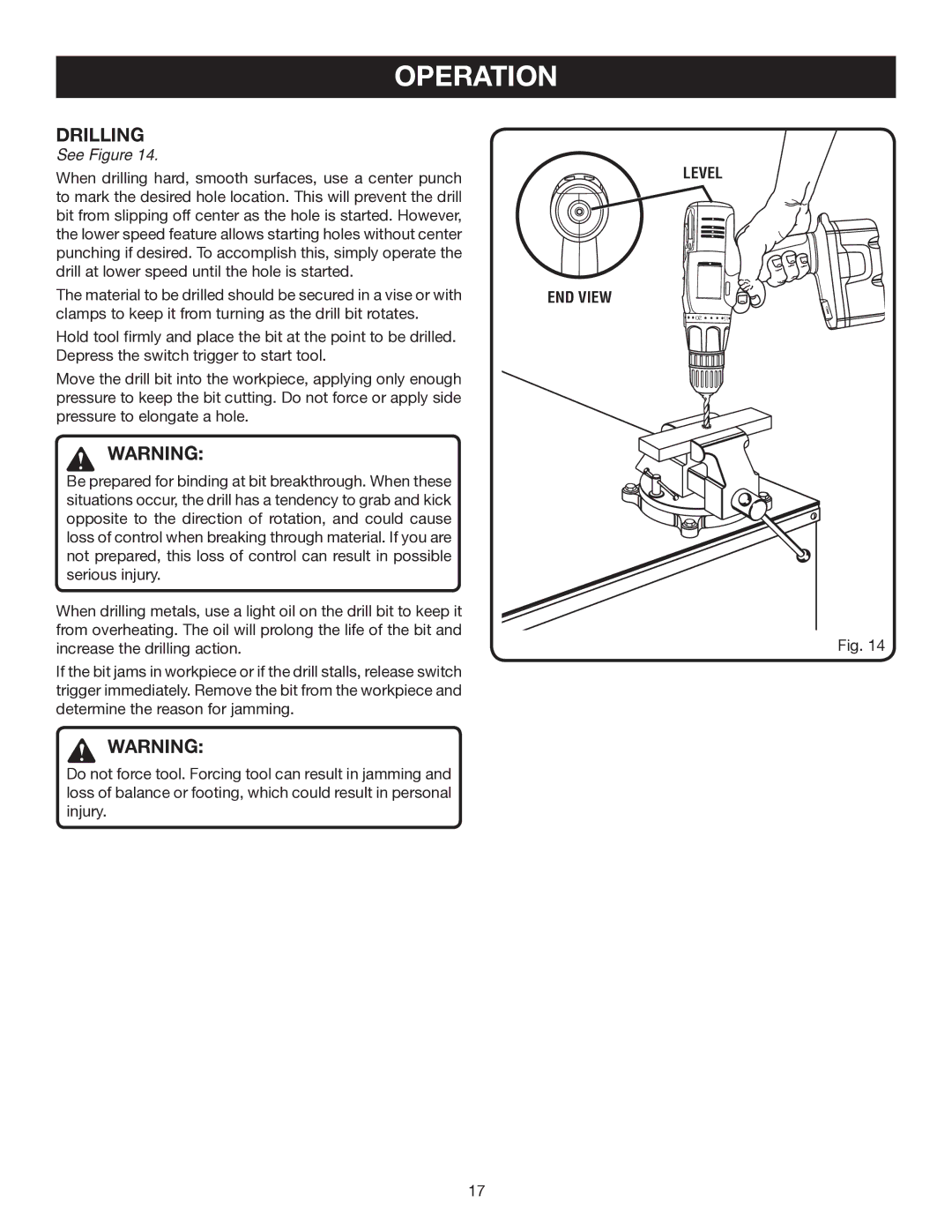
OPERATION | |
DRILLING |
|
See Figure 14. | LEVEL |
When drilling hard, smooth surfaces, use a center punch | |
to mark the desired hole location. This will prevent the drill |
|
bit from slipping off center as the hole is started. However, |
|
the lower speed feature allows starting holes without center |
|
punching if desired. To accomplish this, simply operate the |
|
drill at lower speed until the hole is started. |
|
The material to be drilled should be secured in a vise or with | END VIEW |
clamps to keep it from turning as the drill bit rotates. |
|
![]()
![]()
![]() 20
20
![]()
![]()
![]()
![]() 15
15![]()
Hold tool firmly and place the bit at the point to be drilled. Depress the switch trigger to start tool.
Move the drill bit into the workpiece, applying only enough pressure to keep the bit cutting. Do not force or apply side pressure to elongate a hole.
WARNING:
Be prepared for binding at bit breakthrough. When these |
|
situations occur, the drill has a tendency to grab and kick |
|
opposite to the direction of rotation, and could cause |
|
loss of control when breaking through material. If you are |
|
not prepared, this loss of control can result in possible |
|
serious injury. |
|
When drilling metals, use a light oil on the drill bit to keep it |
|
from overheating. The oil will prolong the life of the bit and | Fig. 14 |
increase the drilling action. | |
If the bit jams in workpiece or if the drill stalls, release switch |
|
trigger immediately. Remove the bit from the workpiece and |
|
determine the reason for jamming. |
|
WARNING: |
|
Do not force tool. Forcing tool can result in jamming and |
|
loss of balance or footing, which could result in personal |
|
injury. |
|
17
